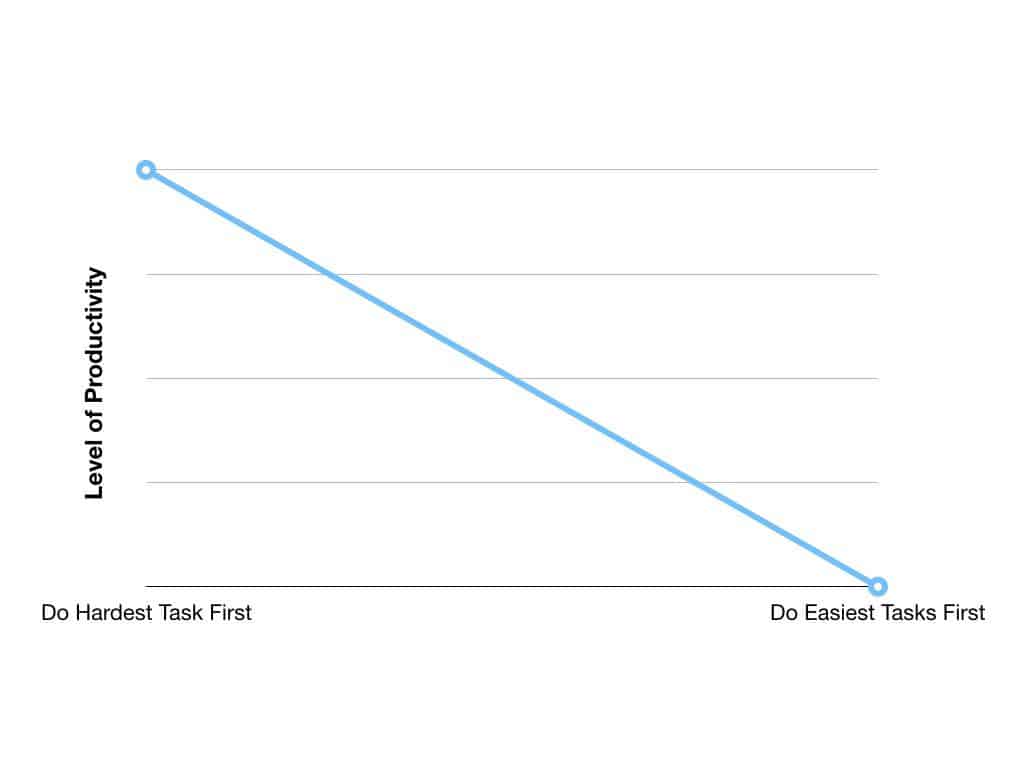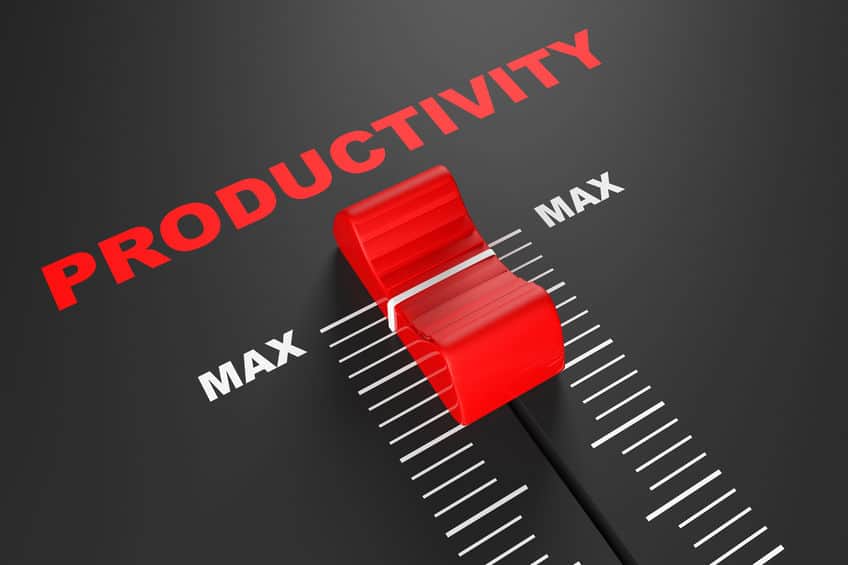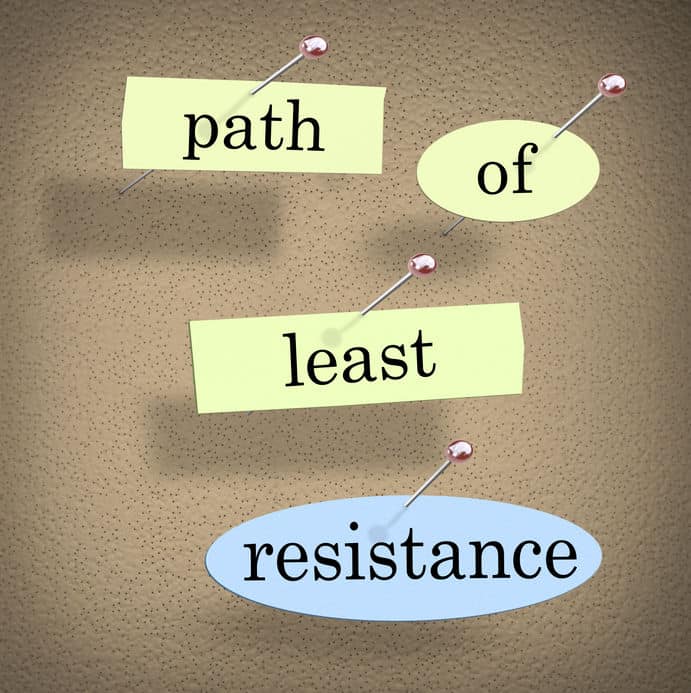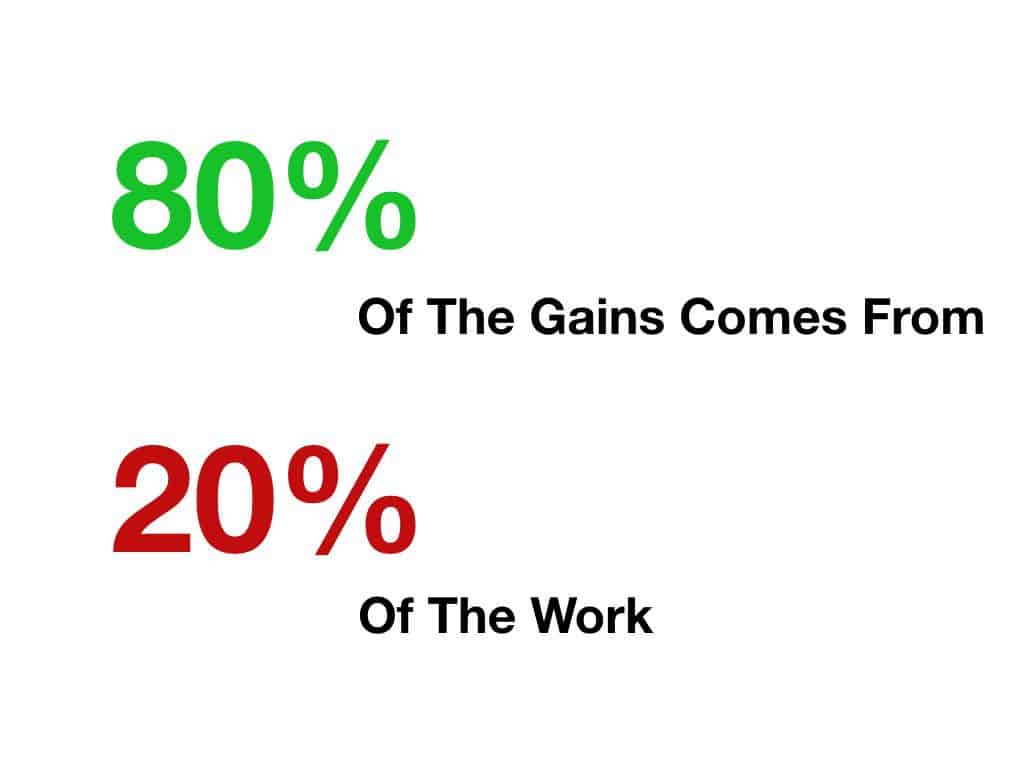
- Services for education institutions
- Academic subject areas
- Peer connection
- Evidence of Studiosity impact
- Case studies from our partners
- Research Hub
- The Tracey Bretag Integrity Prize
- The Studiosity Symposium
- Studiosity for English learners
- Video case studies
- Meet the online team

Academic Advisory Board
Meet the board.
- Social responsibility
- Meet the team
- Join the team

Homework vs Study: Everything You Need To Know
Fiach Smyth
Oct 28, 2016
Homework and study. The two things that all students have in common, no matter where they live, or what school they go to. But what is the real difference between homework and study, and how is a regular routine going to help you do well? Studiosity's Fiach Smyth has the answers.
Why is homework important?
Most nights you are going to have homework set by your teachers. Although we don’t usually think of homework as being study, it’s actually a key part of the learning process. Homework has two purposes: to give you a chance to identify gaps in your knowledge so that you can raise them with your teacher; and to help embed class learnings in your head by making a second pass over the key concepts you covered that day.
What about study?
Now that we know what homework is, what is study? Study is exactly the same as homework, except that you nominate for yourself what work to do, and you do it at a time that’s removed from the class in which you learned the content.
Let’s take a typical maths class as an example. In class the teacher shows you a concept, and then asks you to do a few exercises in class so that they can make sure you’ve understood. They set you some more exercises as homework, so later that night you have to remember what you learned in class, and apply it to those homework exercises. A month later you’ve moved on to another topic in class, but you decide one night to just spend 40 minutes going over those exercises again, to make sure you still remember how to do them, and to keep the learnings fresh in your mind. That’s study.

How much study should I do?
This is going to depend on a lot of things: how much time you have, which subjects you find challenging, where you are in your academic career. For most students from Years 7 to 10, you should be able to manage one block of study at least four nights a week. One block is about 40 - 60 minutes (we’ll discuss why in a moment). Maybe you want to do one block each night Monday to Thursday; maybe it’s easier for you to make Friday a study day where you do all your study. It’s up to you.
It’s important to remember that study is a very personal thing , it’s different for everyone. This approach of four subjects a week isn’t necessarily the best way for you to study; rather it’s the best way to start studying, to get into the habit and to be able to determine for yourself how to change things up to suit your own needs and your available time. Maybe you want to, or have time to do more than four blocks a week – if so, that’s great, as every extra block of time spent studying helps!
What exactly is a 'study block'?
A study block is a set amount of time you set aside for the purpose of studying a particular subject. Although there are exceptions, an average study block should be around 45 minutes long. This is not an arbitrary amount of time. You’ll notice that most classes at school are between 45-50 minutes in length. We know a lot about how people learn, and one thing we know is that after about 45 minutes of working on a particular topic our brains are less able to take in new information.
At school we put a break every 45 minutes or so, allowing students to change classes, change locations and topics, to keep their minds fresh and able to learn, and this is the same with your study. Even if you still feel like you’re fresh and good to keep going, in most cases pushing much past 45 minutes on a block of study will return much less benefit than the first 45 minutes did. Generally you would be better breaking and doing something else and then coming back to study a second time, rather than studying two blocks back-to-back.
At the same time, very short study blocks aren’t as effective as blocks of around 45 minutes (with a few exceptions we’ll discuss below). As you study your brain organises and reorganises information, solidifying it for later recall, and building links between the different things you are jamming into it. It takes a little time for your brain to start building these links, so you need to give your brain time. If you only spend ten minutes reading through your notes that’s not study, that’s revision. Revision is certainly something to work into your overall approach to study, but if that’s all you do then you don’t give your brain the time it needs to start building these information connections. Study blocks should be at least 30 minutes long, but 40-45 is best.

How do I balance homework and study?
Now that we know that homework and study work together, we can see why balancing both is important. You can’t skip homework in order to study, but at the same time you can’t let your homework load become so great that you have no time to study. Teachers are good at knowing how much homework is a reasonable amount to give the maximum chance to bed down class learning without taking all of your available time. However, if you work or have important extra-curricular responsibilities you may find your time being squeezed and that’s something you need to resolve.
Let’s use another example, from maths again. You have maths four days a week, and your teacher sets about 20 exercises for the class each night. These exercises take you two hours to complete, and that’s making it hard to study. First, ask your friends how long it takes them. Is it taking you a lot longer than them? If so, talk to your teacher. Your teacher may be able to identify why the problems take you longer to complete, or may reduce the number of questions they expect you to complete, focusing on the most important questions.
Or maybe it’s just that you have a lot of other commitments. Figure out how much time you can afford to spend on your maths homework , and then stop when you reach that time.
If the reality is that doing all your homework means that you can’t study, it is generally better that you take a few short cuts with your homework rather than just not studying. As we said above, study refreshes what you bedded down doing your homework, so you need both.
Remember, take a break
An essential component of good study is knowing when to take a break from study. If you sit yourself down and do four subjects worth of homework and then power through two study blocks, that study is not going to be nearly as effective as it could have been had you taken some breaks.
As a good rule of thumb, if you study for a block of 45 minutes take the next fifteen minutes off. Get away from wherever you were sitting, go walk around, or talk to people, or grab a yummy study snack .

Both homework and study are equally as important, and both need to be scheduled into your study time. See how you go with the study blocks, and if you have any feedback, let us know in the comments below!
We wish you all the best.
Find out if you have free access to Studiosity here.
Topics: Students , Homework , Study
About Studiosity
Asking for feedback on your work is an essential part of learning. So when you want to better understand a concept or check you're on the right track, we're here for you.
Find out if you have free access through your institution here .
Recent Posts
Posts by topic.
- Students (85)
- Higher education (71)
- Student Experience (50)
- University (47)
- Education (42)
- online study (34)
- Interview (31)
- Learning (28)
- Tertiary education (28)
- Educators (27)
- Research (25)
- Parents (23)
- Podcast (20)
- English (18)
- High School (18)
- students first (18)
- Technology (17)
- Writing (17)
- student wellbeing (15)
- Formative feedback (14)
- Student stories (14)
- Academic Advisory Board (13)
- Homework (13)
- Assignment Help (12)
- Education policy (12)
- Literacy (12)
- Student satisfaction (12)
- academic integrity (12)
- Events (11)
- Learning trends (10)
- Studiosity (10)
- covid19 (10)
- international student (10)
- Australia (9)
- Health and Wellbeing (9)
- Student retention (9)
- Teaching (9)
- Equality (8)
- Secondary education (8)
- Student support (8)
- UK Higher Education (8)
- Science (7)
- Student performance (7)
- UK students (7)
- staff wellbeing (7)
- Partnerships (6)
- Widening Participation (6)
- academic services (6)
- online learning (6)
- student success (6)
- CanHigherEd (5)
- Online Tutoring (5)
- Workload (5)
- belonging (5)
- CVs and cover letters (4)
- Internet (4)
- Mathematics (4)
- School holidays (4)
- #InthisTogether (3)
- Grammar (3)
- University of Exeter (3)
- ethical AI (3)
- generativeAI (3)
- teaching & learning (3)
- Charity (2)
- Government (2)
- Mentors (2)
- Primary education (2)
- Subject Specialists (2)
- academic writing (2)
- accessibility (2)
- community (2)
- diversity (2)
- plagiarism prevention (2)
- student outcomes (2)
- student stress (2)
- webinar (2)
- Biology (1)
- Careers (1)
- Chemistry (1)
- EU students (1)
- First Nations success (1)
- First years (1)
- Indigenous Strategy (1)
- Middle East (1)
- Nutrition (1)
- Teacher (1)
- academic support (1)
- business schools (1)
- choice of language (1)
- dyslexia (1)
- job help (1)
- library services (1)
- podcasts (1)
- reconciliation (1)
- reflection (1)
- university of west of england (1)
- July 2015 (12)
- March 2020 (11)
- June 2020 (10)
- July 2020 (8)
- September 2020 (8)
- March 2015 (7)
- April 2015 (7)
- October 2019 (7)
- April 2020 (7)
- May 2018 (6)
- April 2019 (6)
- May 2020 (6)
- September 2022 (6)
- October 2024 (6)
- June 2015 (5)
- August 2015 (5)
- December 2017 (5)
- March 2018 (5)
- February 2020 (5)
- March 2021 (5)
- June 2021 (5)
- July 2016 (4)
- March 2017 (4)
- February 2018 (4)
- August 2018 (4)
- May 2019 (4)
- July 2019 (4)
- August 2019 (4)
- March 2024 (4)
- August 2024 (4)
- November 2024 (4)
- February 2015 (3)
- May 2015 (3)
- September 2015 (3)
- December 2015 (3)
- January 2016 (3)
- April 2016 (3)
- October 2016 (3)
- December 2016 (3)
- April 2017 (3)
- September 2017 (3)
- October 2017 (3)
- April 2018 (3)
- October 2018 (3)
- March 2019 (3)
- January 2020 (3)
- October 2020 (3)
- November 2020 (3)
- June 2022 (3)
- October 2022 (3)
- November 2022 (3)
- February 2023 (3)
- August 2023 (3)
- November 2023 (3)
- April 2024 (3)
- July 2024 (3)
- March 2016 (2)
- May 2016 (2)
- August 2016 (2)
- July 2017 (2)
- January 2018 (2)
- November 2018 (2)
- December 2018 (2)
- February 2019 (2)
- June 2019 (2)
- September 2019 (2)
- January 2021 (2)
- February 2021 (2)
- April 2021 (2)
- August 2021 (2)
- September 2021 (2)
- December 2021 (2)
- August 2022 (2)
- March 2023 (2)
- May 2023 (2)
- December 2023 (2)
- June 2024 (2)
- September 2024 (2)
- December 2024 (2)
- October 2008 (1)
- August 2013 (1)
- October 2015 (1)
- February 2016 (1)
- June 2016 (1)
- September 2016 (1)
- November 2016 (1)
- January 2017 (1)
- May 2017 (1)
- June 2017 (1)
- August 2017 (1)
- November 2017 (1)
- June 2018 (1)
- September 2018 (1)
- January 2019 (1)
- November 2019 (1)
- December 2019 (1)
- August 2020 (1)
- December 2020 (1)
- May 2021 (1)
- February 2022 (1)
- March 2022 (1)
- July 2022 (1)
- December 2022 (1)
- January 2023 (1)
- June 2023 (1)
- July 2023 (1)
- September 2023 (1)
- October 2023 (1)
- February 2024 (1)
Studiosity is personalised study help... anywhere!
Did you know us as ' YourTutor '? Even though we have a new name, it's the same awesome service, same us.

ABN 41 114 279 668
Student zone, assignment calculator, calendars and organisers, study survival guides, free practice tests, student faqs, download our mobile app, student sign in, success stories.
Student Reviews & Testimonials
Specialist Sign In
Meet our specialists
Meet the team, media and research, student reviews.
Read more on Google

Studiosity acknowledges the Traditional Indigenous Custodians of country throughout Australia, and all lands where we work, and recognises their continuing connection to land, waters, and culture. We pay our respects to Elders past and present.
Contact • FAQ • Privacy • Accessibility • Acceptable Use • Terms of Use AI-for-Learning Polic y • Academic Integrity Policy
- [email protected]
- + 12128992312
- What to know about the study and homework
When it comes to study and homework, these are two things that are constant in every student’s life. But for many, they don’t understand the difference between study and homework, and also how to go around tackling either. Fiach Smyth from Studiosity has the following answers concerning this.
What is the importance of homework?
Most of the time, as a student, you will have to spend a late night working on homework. For many students, they do not usually take homework as part of the study. But we need to realize that it is a vital component of the learning process.
Looking at homework, it has a few purposes: the first one is the chance to notice gaps that you have with your knowledge. It helps since you can raise these issues with the teachers. The other purpose is that it enables you to go through the things you have learned during the day, which helps you discover the concepts better.
What is the study?
We understand what homework is, but what can we say the study is? We can say that study is the same as homework, but unlike homework, where the teacher usually gives it, the study is generally self-driven. It is also done during times when you are not in class. It is usually more of revising the content you have learned in class.
How long should you study?
It is dependent on a few things. You need to consider several things when deciding the time you need to study. The first thing is how much time you have, the subjects that you are dealing with, and the level you are in, in your academics.
Looking at different stages in school, case in point students in year 7-10 of school, they can manage to study for a block (60minutes) for four nights a week.
That said, one important thing to remember is that study is a personal thing. It is different for every person. You need to look at ways that work for you and the best time you can study well and be more productive.
What is a study block?
It is sometimes set aside to focus on studying a particular subject. An average study block is usually about 45 minutes, but sometimes there can be exceptions. This time limit is not arbitrary. Looking at schools, most classes range between 45-50 mins. It is mostly since our brain works at optimum within a particular time focusing on one thing, and after 45 minutes, it is bot able to take in new information properly.
How do you balance between study and homework?
After understanding that study and homework work together, it is also imperative that you know how to balance between both. On the one hand, you can let the time spent on homework be too much that you skip studying. Most teachers give a reasonable amount of homework for the students so that they have enough time to study. You need to learn the balance between homework and study.
To be successful in studying, you need to learn when to take a break. It is good to spend time studying but to be at your best, and you need to take breaks. The same way classes take breaks every 45 minutes, and you should do the same with your study time. A recommendable example is for every block you study, i.e., 45 minutes take a rest of 15 mins.
Recent Posts
- Pros And Cons Of Homework
- Should Students Have Homework?
- The Invention of Homework
- Who Invented Homework and Why? Top Facts You Should Know
- What to do when children say they hate homework
- assignment tips
- college homework
- economics homework
- math assignment
Many students face different problems when dealing with homework assignments. Our website exists for such students. On it, you can find a lot of well-written articles on different topics related to homework.
Useful Links
- Math lessons
Are You Down With or Done With Homework?
- Posted January 17, 2012
- By Lory Hough

The debate over how much schoolwork students should be doing at home has flared again, with one side saying it's too much, the other side saying in our competitive world, it's just not enough.
It was a move that doesn't happen very often in American public schools: The principal got rid of homework.
This past September, Stephanie Brant, principal of Gaithersburg Elementary School in Gaithersburg, Md., decided that instead of teachers sending kids home with math worksheets and spelling flash cards, students would instead go home and read. Every day for 30 minutes, more if they had time or the inclination, with parents or on their own.
"I knew this would be a big shift for my community," she says. But she also strongly believed it was a necessary one. Twenty-first-century learners, especially those in elementary school, need to think critically and understand their own learning — not spend night after night doing rote homework drills.
Brant's move may not be common, but she isn't alone in her questioning. The value of doing schoolwork at home has gone in and out of fashion in the United States among educators, policymakers, the media, and, more recently, parents. As far back as the late 1800s, with the rise of the Progressive Era, doctors such as Joseph Mayer Rice began pushing for a limit on what he called "mechanical homework," saying it caused childhood nervous conditions and eyestrain. Around that time, the then-influential Ladies Home Journal began publishing a series of anti-homework articles, stating that five hours of brain work a day was "the most we should ask of our children," and that homework was an intrusion on family life. In response, states like California passed laws abolishing homework for students under a certain age.
But, as is often the case with education, the tide eventually turned. After the Russians launched the Sputnik satellite in 1957, a space race emerged, and, writes Brian Gill in the journal Theory Into Practice, "The homework problem was reconceived as part of a national crisis; the U.S. was losing the Cold War because Russian children were smarter." Many earlier laws limiting homework were abolished, and the longterm trend toward less homework came to an end.
The debate re-emerged a decade later when parents of the late '60s and '70s argued that children should be free to play and explore — similar anti-homework wellness arguments echoed nearly a century earlier. By the early-1980s, however, the pendulum swung again with the publication of A Nation at Risk , which blamed poor education for a "rising tide of mediocrity." Students needed to work harder, the report said, and one way to do this was more homework.
For the most part, this pro-homework sentiment is still going strong today, in part because of mandatory testing and continued economic concerns about the nation's competitiveness. Many believe that today's students are falling behind their peers in places like Korea and Finland and are paying more attention to Angry Birds than to ancient Babylonia.
But there are also a growing number of Stephanie Brants out there, educators and parents who believe that students are stressed and missing out on valuable family time. Students, they say, particularly younger students who have seen a rise in the amount of take-home work and already put in a six- to nine-hour "work" day, need less, not more homework.
Who is right? Are students not working hard enough or is homework not working for them? Here's where the story gets a little tricky: It depends on whom you ask and what research you're looking at. As Cathy Vatterott, the author of Rethinking Homework , points out, "Homework has generated enough research so that a study can be found to support almost any position, as long as conflicting studies are ignored." Alfie Kohn, author of The Homework Myth and a strong believer in eliminating all homework, writes that, "The fact that there isn't anything close to unanimity among experts belies the widespread assumption that homework helps." At best, he says, homework shows only an association, not a causal relationship, with academic achievement. In other words, it's hard to tease out how homework is really affecting test scores and grades. Did one teacher give better homework than another? Was one teacher more effective in the classroom? Do certain students test better or just try harder?
"It is difficult to separate where the effect of classroom teaching ends," Vatterott writes, "and the effect of homework begins."
Putting research aside, however, much of the current debate over homework is focused less on how homework affects academic achievement and more on time. Parents in particular have been saying that the amount of time children spend in school, especially with afterschool programs, combined with the amount of homework given — as early as kindergarten — is leaving students with little time to run around, eat dinner with their families, or even get enough sleep.
Certainly, for some parents, homework is a way to stay connected to their children's learning. But for others, homework creates a tug-of-war between parents and children, says Liz Goodenough, M.A.T.'71, creator of a documentary called Where Do the Children Play?
"Ideally homework should be about taking something home, spending a few curious and interesting moments in which children might engage with parents, and then getting that project back to school — an organizational triumph," she says. "A nag-free activity could engage family time: Ask a parent about his or her own childhood. Interview siblings."

Instead, as the authors of The Case Against Homework write, "Homework overload is turning many of us into the types of parents we never wanted to be: nags, bribers, and taskmasters."
Leslie Butchko saw it happen a few years ago when her son started sixth grade in the Santa Monica-Malibu (Calif.) United School District. She remembers him getting two to four hours of homework a night, plus weekend and vacation projects. He was overwhelmed and struggled to finish assignments, especially on nights when he also had an extracurricular activity.
"Ultimately, we felt compelled to have Bobby quit karate — he's a black belt — to allow more time for homework," she says. And then, with all of their attention focused on Bobby's homework, she and her husband started sending their youngest to his room so that Bobby could focus. "One day, my younger son gave us 15-minute coupons as a present for us to use to send him to play in the back room. … It was then that we realized there had to be something wrong with the amount of homework we were facing."
Butchko joined forces with another mother who was having similar struggles and ultimately helped get the homework policy in her district changed, limiting homework on weekends and holidays, setting time guidelines for daily homework, and broadening the definition of homework to include projects and studying for tests. As she told the school board at one meeting when the policy was first being discussed, "In closing, I just want to say that I had more free time at Harvard Law School than my son has in middle school, and that is not in the best interests of our children."
One barrier that Butchko had to overcome initially was convincing many teachers and parents that more homework doesn't necessarily equal rigor.
"Most of the parents that were against the homework policy felt that students need a large quantity of homework to prepare them for the rigorous AP classes in high school and to get them into Harvard," she says.
Stephanie Conklin, Ed.M.'06, sees this at Another Course to College, the Boston pilot school where she teaches math. "When a student is not completing [his or her] homework, parents usually are frustrated by this and agree with me that homework is an important part of their child's learning," she says.
As Timothy Jarman, Ed.M.'10, a ninth-grade English teacher at Eugene Ashley High School in Wilmington, N.C., says, "Parents think it is strange when their children are not assigned a substantial amount of homework."
That's because, writes Vatterott, in her chapter, "The Cult(ure) of Homework," the concept of homework "has become so engrained in U.S. culture that the word homework is part of the common vernacular."
These days, nightly homework is a given in American schools, writes Kohn.
"Homework isn't limited to those occasions when it seems appropriate and important. Most teachers and administrators aren't saying, 'It may be useful to do this particular project at home,'" he writes. "Rather, the point of departure seems to be, 'We've decided ahead of time that children will have to do something every night (or several times a week). … This commitment to the idea of homework in the abstract is accepted by the overwhelming majority of schools — public and private, elementary and secondary."
Brant had to confront this when she cut homework at Gaithersburg Elementary.
"A lot of my parents have this idea that homework is part of life. This is what I had to do when I was young," she says, and so, too, will our kids. "So I had to shift their thinking." She did this slowly, first by asking her teachers last year to really think about what they were sending home. And this year, in addition to forming a parent advisory group around the issue, she also holds events to answer questions.
Still, not everyone is convinced that homework as a given is a bad thing. "Any pursuit of excellence, be it in sports, the arts, or academics, requires hard work. That our culture finds it okay for kids to spend hours a day in a sport but not equal time on academics is part of the problem," wrote one pro-homework parent on the blog for the documentary Race to Nowhere , which looks at the stress American students are under. "Homework has always been an issue for parents and children. It is now and it was 20 years ago. I think when people decide to have children that it is their responsibility to educate them," wrote another.
And part of educating them, some believe, is helping them develop skills they will eventually need in adulthood. "Homework can help students develop study skills that will be of value even after they leave school," reads a publication on the U.S. Department of Education website called Homework Tips for Parents. "It can teach them that learning takes place anywhere, not just in the classroom. … It can foster positive character traits such as independence and responsibility. Homework can teach children how to manage time."
Annie Brown, Ed.M.'01, feels this is particularly critical at less affluent schools like the ones she has worked at in Boston, Cambridge, Mass., and Los Angeles as a literacy coach.
"It feels important that my students do homework because they will ultimately be competing for college placement and jobs with students who have done homework and have developed a work ethic," she says. "Also it will get them ready for independently taking responsibility for their learning, which will need to happen for them to go to college."
The problem with this thinking, writes Vatterott, is that homework becomes a way to practice being a worker.
"Which begs the question," she writes. "Is our job as educators to produce learners or workers?"
Slate magazine editor Emily Bazelon, in a piece about homework, says this makes no sense for younger kids.
"Why should we think that practicing homework in first grade will make you better at doing it in middle school?" she writes. "Doesn't the opposite seem equally plausible: that it's counterproductive to ask children to sit down and work at night before they're developmentally ready because you'll just make them tired and cross?"
Kohn writes in the American School Board Journal that this "premature exposure" to practices like homework (and sit-and-listen lessons and tests) "are clearly a bad match for younger children and of questionable value at any age." He calls it BGUTI: Better Get Used to It. "The logic here is that we have to prepare you for the bad things that are going to be done to you later … by doing them to you now."
According to a recent University of Michigan study, daily homework for six- to eight-year-olds increased on average from about 8 minutes in 1981 to 22 minutes in 2003. A review of research by Duke University Professor Harris Cooper found that for elementary school students, "the average correlation between time spent on homework and achievement … hovered around zero."
So should homework be eliminated? Of course not, say many Ed School graduates who are teaching. Not only would students not have time for essays and long projects, but also teachers would not be able to get all students to grade level or to cover critical material, says Brett Pangburn, Ed.M.'06, a sixth-grade English teacher at Excel Academy Charter School in Boston. Still, he says, homework has to be relevant.
"Kids need to practice the skills being taught in class, especially where, like the kids I teach at Excel, they are behind and need to catch up," he says. "Our results at Excel have demonstrated that kids can catch up and view themselves as in control of their academic futures, but this requires hard work, and homework is a part of it."
Ed School Professor Howard Gardner basically agrees.
"America and Americans lurch between too little homework in many of our schools to an excess of homework in our most competitive environments — Li'l Abner vs. Tiger Mother," he says. "Neither approach makes sense. Homework should build on what happens in class, consolidating skills and helping students to answer new questions."
So how can schools come to a happy medium, a way that allows teachers to cover everything they need while not overwhelming students? Conklin says she often gives online math assignments that act as labs and students have two or three days to complete them, including some in-class time. Students at Pangburn's school have a 50-minute silent period during regular school hours where homework can be started, and where teachers pull individual or small groups of students aside for tutoring, often on that night's homework. Afterschool homework clubs can help.
Some schools and districts have adapted time limits rather than nix homework completely, with the 10-minute per grade rule being the standard — 10 minutes a night for first-graders, 30 minutes for third-graders, and so on. (This remedy, however, is often met with mixed results since not all students work at the same pace.) Other schools offer an extended day that allows teachers to cover more material in school, in turn requiring fewer take-home assignments. And for others, like Stephanie Brant's elementary school in Maryland, more reading with a few targeted project assignments has been the answer.
"The routine of reading is so much more important than the routine of homework," she says. "Let's have kids reflect. You can still have the routine and you can still have your workspace, but now it's for reading. I often say to parents, if we can put a man on the moon, we can put a man or woman on Mars and that person is now a second-grader. We don't know what skills that person will need. At the end of the day, we have to feel confident that we're giving them something they can use on Mars."
Read a January 2014 update.
Homework Policy Still Going Strong

Ed. Magazine
The magazine of the Harvard Graduate School of Education
Related Articles

Commencement Marshal Sarah Fiarman: The Principal of the Matter

Making Math “Almost Fun”
Alum develops curriculum to entice reluctant math learners

Reshaping Teacher Licensure: Lessons from the Pandemic
Olivia Chi, Ed.M.'17, Ph.D.'20, discusses the ongoing efforts to ensure the quality and stability of the teaching workforce
SquareTrade Blog
6 Tips for a Homework & Studying Schedule That Actually Works

Waiting until the last minute to cram for a test or to write an essay isn’t just going to make your life more stressful. It’s also less likely to produce the results you want.
Studies have shown that the most effective way to retain new material is with spaced repetition . This means engaging with the concepts consistently over a longer span of time.
If you want to cut down on the all-nighters, try these six easy tips to create a homework and studying schedule that actually works.
1. Review Your Homework in Advance
First, set some time aside at the beginning of your semester or school term to look over your assignments. Make sure you understand:
- What each one entails
- How much time each task will take
- Its due date
Then, check to see if you need any additional resources. For example, you may need a library book to complete an assignment. Nothing will throw off your schedule more than sitting down at your desk only to find out that you don’t have what you need to do the work. Reviewing your assignments before they’re due will help with efficiency once you start working.
2. Make Your Schedule as Specific as Possible
Once you have a list of everything you need to do, turn it into a daily or weekly schedule. Decide which tasks you want to do first and when. Then, you can write it in a planner or use an Excel template to create a printable homework chart.
Avoid generalized terms like “study Spanish for two hours.” Otherwise, you’ll be tempted to fill the time with the easiest task that falls into that category.
Instead, list specific items like, “write book report” or “study flash cards.” This way, you know exactly what you need to do and are less likely to put it off.
3. Find Your Preferred Study Routine
Sometimes you have to do homework when you’re tired or aren’t feeling well, but that doesn’t mean you should totally ignore what your body’s telling you.
According to the latest research , multiple 40-minute study sessions can be more productive than three-hour chunks. Experiment with studying at different times of day and for varying lengths of time.
Take notes about which sessions were productive and which ones weren’t to help you figure out your ideal study routine.
4. Download a Studying App
There’s no denying that phones can be distracting while studying. But if you use them wisely they can be a lot of help.
Use flashcard apps to create your own flashcards and gamify your study experience. These apps help you study in small bits throughout the day plus you won’t have to carry physical flashcards around with you.
There are other apps to help you learn a language, practice math, or take better notes . You can also use a homework scheduling app and color-code your assignments by subject.
5. Create a Productive Workspace
Using the same workspace every day can help you stick to your homework schedule. Avoid distracting places like the living room or kitchen, and try not to work on your bed or in front of the TV. Even small things, like making sure your laptop is charged or putting on your favorite study playlist, can make a big difference in your productivity.
Ideally, you should set aside a desk in a quiet room that’s comfortable enough to sit at for a few hours at a time. The more you use it for studying, the more you’ll associate it with productivity and be in the right headspace to get work done.
For some tips on how to get started, check out our guide on how to create the perfect homework environment .
6. Ask for Help if You Need it
Finally, don’t be afraid to reach out for support. Even if you have a good grasp on the material, sometimes studying alone can be isolating.
From joining an online study group to hiring a professional tutor for your SATs, there are plenty of ways to get outside support. You can ask a friend or parent to check in on your progress or proofread your assignments before you submit them.
Whether you’re in middle school, high school, or college, homework never really goes away. But you can make it more manageable with these six helpful homework and studying schedule tips.
Related Stories

10 Awesome Toys for Kids

Video Game Holiday Gift Guide

The Latest Baby Gear To Add to Your Registry
Related posts.


Hardest or Easiest Work First? What the Research Shows
Hardest or easiest work first? It’s one of the largest questions in productivity management, and one that has been under debate or decades.
There are two patterns of thought on this topic. Some productivity experts believe that by starting on your quickest, simplest tasks first, you build momentum that carries you through to the harder tasks. However, other experts believe that completing your hardest tasks first is the key to getting things done more efficiently. Research shows that people who execute their most difficult tasks first are generally more productive and high achieving than those who start easy and work their way up.
Since productivity is a cornerstone of successful business, there have been many studies performed to analyze what methodologies make people most productive. Read on to find out what their research revealed.
If you are looking for the best study tools out there, you should read our article on the best study tools to enhance your studying at the link below:
The Ultimate Study Tools You Must Use to Succeed!
Why Is Doing the Easy Thing First Is Less Productive
Completing the easiest items first is less productive. This idea is reinforced by behavioral research that shows that starting with easier tasks first is not helpful overall.
The data shows this is the case even though it can initially feel good to take the path of least resistance in an attempt to get the ball rolling. The human brain is wired to feel positive about short-term rewards, so we are more inclined to take actions that result in gaining those short-term rewards.

These are the basic reasons found by behavioral research that doing easier things before hard things in a productivity workflow is counterproductive:
- The stress of putting off a difficult task negatively affects productivity towards all other tasks performed.

Scientific studies have shown that the dread of having to execute a major task requires a large amount of subconscious focus.
The weight of having a major task on your mind can make you lose focus on the task at hand. This loss of focus makes the task take longer to complete. It can also lead to the task completing less effectively.
- People make the choice to complete easier tasks first not on the logical basis of what methodology is more productive, but on what method makes them feel better.

The choice to do easier tasks first is rarely made with productivity in mind.
Rather, people choose this workflow method because it elicits positive emotions that produce a short-term psychological high, not because it works better.
- Humans have a psychological tendency to enjoy experiences that improve over time.

When you start an easy task and start building up to harder and harder tasks, this can create negative psychological feedback.

Rather than building momentum, this process psychologically feels akin to pushing a boulder that gets heavier and heavier the further you push it. The increasing difficulty of subsequent tasks is an exhausting process, not an empowering one and has a poor effect on overall productivity.
- Smaller tasks are generally easier to defer, delegate, or avoid entirely than large tasks if time or motivation runs low.
Difficult tasks tend to be important tasks, and you’re less likely to be able to avoid them without suffering negative consequences.

However, if a person does their difficult tasks first, it is simpler to postpone or delegate small tasks.
- People have a limited amount of energy in any given week to produce or perform.
After a 50-hour workweek, behavioral scientists have found that the work output of an employee workforce drops off a cliff. Once the number of hours passes 55 hours, work output is almost nil due to exhaustion.

The impact of this decline in being effective is that people who work 70 hours a week are achieving next to nothing in the extra fifteen hours they choose to work. Doing hard tasks first ensures there is enough physical and cognitive energy to complete these important tasks.
- It is more productive to consider whether you need to perform small tasks at all rather than do them first.
One of the greatest hacks of productivity is not to perform your to-do list more efficiently, but to shorten the overall number of tasks on it.

Shorter tasks lend themselves to evaluation easier as they are typically simpler than longer, more-involved tasks. Before doing any task, a two-step evaluation should be performed to determine if:
- The task is worth doing.
- If the task is worth doing, am I the best person to do it.
It is both easier to evaluate the validity of doing a task and whether you are the best person to do it with smaller tasks. This process alone can save you a significant amount of time and energy.
- The best measure of productivity is the quality of tasks performed, not quantity.
For example, performing ten different small tasks to organize your office is great. However, if these small tasks stop you from meeting a deadline on a major customer deliverable, they weren’t worth doing.

Taking the time to access the relative importance of each task as well as its estimated difficulty and duration is essential.
- People performing small tasks tend to multitask, and multitasking is not productive–it only feels productive.
Studies show that people who multitask are generally less productive (and less accurate in their work) than those who monotask.

The human brain is not good at multi-tasking. Our brains are tremendously powerful and great at many things but multi-tasking is not one of them. If fact, studies have linked heavy multi-tasking to poorer performance on simple memory tasks. Researchers have also seen in brain scans that the human brain struggles significantly with multitasking.
Even though it feels more productive, performing a batch of small tasks is typically not as productive as getting that hardest task out of the way first.
- Completing smaller tasks first is constructive procrastination, and destroys productivity.
If your goal is to complete important work consistently and you are procrastinating, you are not going to produce consistently.
Cutting through resistance to complete hard tasks first eliminates procrastination and increases your general efficiency.
Why Do People Choose To Work on Easy Tasks First?
The reason the “path of least resistance” exists as an idiom is because people generally have a tendency to procrastinate on difficult tasks and perform smaller tasks instead. Completing smaller tasks generates a feeling of productivity.
Behavioral scientists call this tendency “task completion bias.”
When you succumb to task completion bias, you feel more productive because they are getting a larger quantity of smaller tasks done. However, as these tasks have less intrinsic value, you end up being ultimately less productive.

People who choose the path of least resistance are driven by the satisfaction derived from completing a task. However, this is dangerous to productivity as the satisfaction derived is not coupled appropriately to the level of importance of the task itself.
Why Do the Hard Thing First?
Productivity gurus like to quote Mark Twain’s famous advice towards productivity, which says to “eat the frog” or perform your hardest task right off the bat. This advice holds water in both behavioral research and anecdotal observation.
In their exploration of behavioral work analysis, scientists have found the following:

Most successful and productive workers consistently put their most difficult tasks first ahead of smaller tasks.
In productivity circles, this concept is usually called a Most Important Tasks (MIT) list.
Prioritization is essential in deciding what tasks to do first. While most people do what they feel like doing at the moment, it is better to complete the most important tasks first.

Here are some of the reasons why it is more productive to execute your most difficult tasks first:
- Doing the hardest task first means you are more likely to complete it.
The overwhelming majority of people will be less motivated at the end of their day than at the beginning of it due to decision fatigue and erosion of physical and mental energy.
Hard tasks should be performed first because that is when you have the most energy.
- Willpower has a ceiling and doesn’t last.
You use willpower throughout the day to force yourself to do everything from picking what you want for lunch to brushing your teeth before you leave for work. By the time you get home, your brain is exhausted from forcing you to act.
The limits of willpower are the reason why people who are trying to get into exercise should work out first thing in the morning.
The reality is fewer people have the willpower to go out and exercise after a full day of executive function performing other work.
- Getting the hardest task out of the way allows you to coast and creates a positive mood, which increases productivity.
Happy people get more things done, and few things make a person happier than knowing they no longer have to dread a hard task.

The relief you feel when you’ve gotten a high-value item checked off your to-do list sets the tone for the rest of your day. You are more likely to finish your other work in a good mood and avoid the emotional demoralization that comes with decision fatigue.
- Productivity follows the Pareto principle.
In the Pareto principle , the concept is that 80% of your results are the result of 20% of your work. In other words, it’s not the amount of time you spend working. Rather, it is about focusing on the tasks that matter, that move the needle.

By this principle, which echoes across economic theory and management, if you only achieve the two hardest tasks on your to-do list, you’ve still produced more quality work than you would have if you had completed the other eight tasks combined.
Applying the Pareto principle to task management, tackling and completing only the most important tasks will have a superior impact on your productivity. In other words, you get more “bang for your buck” in completing larger, more important tasks than lesser, smaller tasks. This principle even applies if you do more smaller tasks. As mentioned earlier, measure your productivity based on the importance of task, not quantity of task. Tim Ferriss covered the benefits of the Pareto principle in his epic book The Four Hour Workweek . If you have not read this book yet, you owe it to yourself to do so.
- Putting off the hardest task is not just unproductive; it has the potential to create more work.
Harder work is work that is easier to screw up, and if you are tired at the end of the day, you’re more likely to make mistakes.

Having to fix mistakes just adds more work on top of the work you already had, so it’s the opposite of productivity. You’re growing your work rather than paring it down.
Tips and Tricks for Completing Your Hardest Work First
- Break difficult tasks into a batch of smaller tasks.
Most hard tasks can be broken down into smaller, simpler tasks. Breaking the complex task down into simpler tasks allows you to use task completion bias to your advantage. You are essentially tricking your brain into believing it is doing easy tasks and allows you to build momentum. A great way of breaking your tasks down into smaller tasks is mind-mapping. Mindmapping allows you to create a relational diagram of your task and its related subtasks. I wrote a blog post on mind-mapping that you can find at the link below:
Link to Mindmapping Blog Post
- Prioritize your to-do list and pick the top hardest or high-quality tasks. Those are your most important things.
The heart of true productivity lies in knowing what it is you need to accomplish versus what you just think you need to do. This philosophy is how you determine task value, which determines how productive you are. If you can identify the top two or three most important tasks in your list, these tasks will hold the same productivity value as the rest of the list combined.

Even if you only do these two or three things and nothing else, you will have been extremely productive in terms of task value.
- Set up your difficult tasks ahead of time.
Because you’ll already be dreading the task, you don’t want to put any psychological barriers up between yourself and initiating the first steps to executing it.
If you need to write a paper, make sure you have all the research gathered beforehand. If you’re tackling a huge gardening project, make sure all the tools you need are ready to go first thing. If you’re trying to the gym, lay your gym clothes out the night before.
- Set a timer.
Often the anticipation of a difficult task is more difficult than the task itself. Set a timer for twenty minutes and tell yourself you must execute the task until the timer goes off. If the timer goes off, you will be free to take a five-minute break.

The Pomodoro Technique uses relatively short work bursts and breaks to help overcome the mental overhead of getting started. For more information on the Pomodoro Technique, check out our blog post (link below):
Link to Pomodoro Technique Blog Post
- Set your priority tasks the night before.
By doing so, this will put them at the forefront of your mind, and part of your brain will be considering them subconsciously while you sleep as well. Humans solve a lot of our problems while we’re sleeping.
Setting your priority tasks ahead of time takes advantage of theta brain waves, which allow you to solve creative problems more easily.
If you reflect on tasks in a theta state, you may be more likely to come up with creative answers to make the work less difficult. Doing this can increase your overall productivity through outside-the-box shortcuts.
- Make sure your difficult task is well-defined.
A lot of decision fatigue comes from deciding how to do something, rather than what to do. This indecision keeps difficult executive actions that are complicated from being started without great resistance.

If you are about to perform a difficult task, write the task down, and list all the things you need to do related to it. An abstract premise like “clean the house” can be daunting to the mind, but if you write fifty small household chores, you will feel less intimidated.
- Use the power of habit.
Make a point to consistently keep track of your most important tasks, and consistently do the hardest things you’ve prioritized first. Willpower is a lot like a muscle power–the more you use it, the larger reserve of it you have to draw from.

One way to do this is to write your most important tasks in a small journal every night, and mark them off the next day. By keeping a record, you can use ritual to reinforce your motivation and make you more productive overall through consistent performance.
- Stay away from social media and other distractions.
Doing the hard thing first thing means doing it first thing. Do not pass GO; do not collect two hundred dollars. Straight to eating the frog for you.

It is very easy to get drawn into browsing Facebook or Netflix, reading a blog, or reading the news rather than getting work done. Before you know it, you will have lost hours of productivity. A great way to block out distractions is to use an application like Focus to temporarily block you from accessing certain websites. Focus is a Mac application and is part of the great Setapp service. Setapp is a service that, for a very low monthly price, allows you to download and use over 150 Mac apps. For more information on Focus, click this link .
Do not execute any action before your hardest task for the best results, especially if it could be considered a leisure activity. Save that as a reward for when you complete your task. You’ll be working on completing it that much more quickly.
Final Thoughts
Productivity is not about how many tasks you get done. Rather, it is about getting valuable tasks done as efficiently as possible. Everything else is unimportant. Longer tasks are typically more important than smaller tasks.
Everybody has days where they are running around like a chicken with their head cut off, trying to do a dozen petty or inconsequential things at once. That feeling compounds when you realize you haven’t gotten anything valuable done. The key to true productivity isn’t the quantity of your work, but the quality of it.
Assessing quality (especially the quality and value of your own work) requires more forethought and preparation. Research shows that working more productively, as opposed to simply working more, leads to higher levels of objective success.
A decade of data reveals that heavy multitaskers have reduced memory
Solutions Architect
Jimmy McTiernan is the owner/author of The Productive Engineer, a website dedicated to helping people master productivity applications. Jimmy also is the creator of The Productive Engineer YouTube channel.
Similar Posts

How to Fall Asleep the Night Before an Exam Every Time
Do you have trouble falling asleep the night before an exam? Kiss your sleepless nights goodbye! Our comprehensive guide will have you sleeping like a baby the night before your exams.

Mastering the Art of Learning: A Comprehensive Guide to Using Flashcards Effectively
Welcome to our deep dive into the world of flashcards, an essential tool for learners of all ages. Whether you’re a student cramming for exams or a lifelong learner keen on absorbing new information, understanding how to effectively use flashcards can transform your study sessions. In this comprehensive guide, we’ll explore the science behind why flashcards work, uncover the pros and cons of digital versus handwritten options, and provide you with actionable tips to make your flashcard sessions more productive.
From the cognitive benefits of active recall and spaced repetition to the practicalities of organizing your deck, we’ve got you covered. We’ll also address common misconceptions and limitations of flashcards, ensuring you have a well-rounded view of this versatile study aid. Plus, don’t miss our section on best practices, where we share expert strategies to help you maximize retention and make learning an engaging, effective experience.
Stay tuned as we delve into the world of flashcards, your secret weapon for educational success!

25 Awesome Tips for Microsoft Excel
Want to learn some cool Excel tips? You have come to the right place! This blog post has 25 tips to help you become more productive and efficient using Excel.

What Should You NOT Do Before An Exam?
I have taken many exams during my scholastic career. As part of my preparation for the exams, I would often wonder if there was anything else I could be doing to better prepare. Typically, I would add more reading or review time to supplement what I was already doing to make myself feel more ready…

How to Use the Zettelkasten System – A Detailed Guide
Heard about the Zettelkasten method and looking to get started using it? This guide will teach you everything you need to know to get started taking and organizing notes using the Zettelkasten method.

Can Studying Be a Hobby?
Can studying be a hobby? We answer this question and show you the ways to make your studying more enjoyable in the guide.

The Debate on Homework: Quantity vs. Quality
- by Brian C Jensen
- September 6, 2024 September 4, 2024

Homework has long been a topic of debate among educators, parents, and students. While some argue that more homework leads to better academic performance, others believe that the quality of homework is far more important than the quantity. This article explores the key arguments on both sides of the debate, examines the impact of homework on students’ well-being, and offers insights into how schools can strike the right balance.
The Origins of Homework: A Brief Overview
Homework has been a staple of the educational system for centuries. Historically, it was introduced as a tool to reinforce classroom learning, helping students practice and internalize new concepts. Over time, however, the amount of homework assigned to students has increased significantly, leading to questions about its effectiveness and impact on students’ lives. Understanding the origins of homework provides context for the current debate, as it highlights how the purpose and expectations of homework have evolved over the years.
Quantity vs. Quality: The Core of the Debate
At the heart of the homework debate is the question of whether more homework actually translates into better academic outcomes. Proponents of assigning more homework argue that it provides students with additional opportunities to practice and master skills , leading to improved performance on tests and in the classroom. They believe that consistent practice helps students retain information and develop a strong work ethic, which can benefit them in the long term.
On the other hand, critics of excessive homework contend that too much homework can be counterproductive. They argue that quality is more important than quantity, emphasizing that homework should be meaningful and relevant to students’ learning. When homework is thoughtfully designed, it can engage students, deepen their understanding of the subject matter, and foster a love for learning. However, when it is excessive or poorly constructed, it can lead to stress, burnout, and a negative attitude towards school.

The Impact of Homework on Student Well-Being
The debate over homework is not just about academic performance; it also touches on the broader issue of student well-being. Studies have shown that excessive homework can contribute to stress, anxiety, and sleep deprivation among students, particularly in high-achieving schools. The pressure to complete large amounts of homework can take a toll on students’ mental and physical health, leading to issues such as headaches, exhaustion, and even depression.
In contrast, when homework is balanced and manageable, it can have positive effects on students’ well-being. Homework that is designed to be engaging and relevant can promote a sense of accomplishment and boost students’ confidence. It can also help students develop time-management skills, as they learn to prioritize tasks and manage their workload effectively. Schools that prioritize quality over quantity in their homework policies are more likely to see students who are motivated, happy, and healthy.
Homework Policies Around the World: A Comparative Perspective
Different countries approach homework in various ways, reflecting cultural attitudes towards education and student well-being. For instance, Finland, known for its high-performing education system, assigns relatively little homework compared to other countries. Finnish educators believe that students should have time to relax and engage in extracurricular activities, which contributes to their overall development.
In contrast, countries like China and South Korea place a heavy emphasis on homework, with students often spending several hours each night completing assignments. These countries have a strong focus on academic achievement and view homework as a crucial component of student success. However, this approach has also been linked to high levels of stress and pressure among students.
By examining homework policies in different countries, educators can gain insights into the potential benefits and drawbacks of various approaches. This comparative perspective can help inform decisions about homework practices in schools, ensuring that they align with educational goals and support students’ well-being.
The Role of Parents in the Homework Debate
Parents play a significant role in the homework debate, as they are often the ones who witness the effects of homework on their children firsthand. Many parents are concerned about the amount of homework their children receive, particularly if it seems to be interfering with family time, extracurricular activities, or their child’s well-being. Some parents advocate for less homework, arguing that children need time to relax, play, and pursue other interests outside of school.
However, other parents believe that homework is essential for their children’s academic success and are supportive of schools that assign more homework. They view homework as an opportunity for their children to reinforce what they have learned in school and develop important study habits.
Balancing these differing perspectives can be challenging for schools. Effective communication between schools and parents is crucial in addressing concerns about homework and ensuring that homework policies are in the best interest of students. Schools can also provide resources and guidance to help parents support their children’s learning at home in a way that is healthy and manageable.
Strategies for Effective Homework Design
Given the ongoing debate about homework, educators are increasingly focused on finding ways to design homework that is both effective and manageable for students. Research suggests that the most effective homework assignments are those that are purposeful, engaging, and tailored to students’ needs.
One strategy is to assign homework that reinforces key concepts taught in class, rather than simply adding to students’ workload. For example, instead of assigning repetitive worksheets, teachers can create assignments that encourage critical thinking and problem-solving. Another approach is to differentiate homework based on students’ individual learning styles and abilities, ensuring that each student is challenged appropriately without being overwhelmed.
Additionally, educators can consider implementing a “flipped classroom” model, where students watch instructional videos or complete readings at home and then engage in hands-on activities or discussions in class. This approach allows students to apply what they have learned in a supportive environment, with the teacher available to provide guidance and feedback.
Moving Forward: Finding a Balance
As the debate on homework continues, it is clear that finding the right balance between quantity and quality is essential. Schools should consider the evidence on the impact of homework on academic performance and student well-being, and use this information to guide their homework policies. By focusing on quality over quantity, schools can ensure that homework serves its intended purpose: to enhance learning, reinforce key concepts, and help students develop important skills.
Ultimately, the goal is to create a homework policy that supports students’ academic success while also promoting their overall well-being. This requires a collaborative effort between educators, parents, and students, as well as a willingness to adapt and refine homework practices as needed. By doing so, schools can create a learning environment that is both challenging and supportive, helping students achieve their full potential.
Conclusion: The Ongoing Debate and Its Implications
The debate on homework—whether to emphasize quantity or quality—remains a contentious issue in education. However, by examining the evidence and considering the diverse perspectives of educators, parents, and students, it is possible to develop homework policies that are both effective and balanced. As schools continue to refine their approaches to homework, the focus should remain on creating assignments that enhance learning, promote student well-being, and prepare students for success in and out of the classroom.
Leave a Reply Cancel reply
Your email address will not be published. Required fields are marked *
Save my name, email, and website in this browser for the next time I comment.
Copyright 2023 —Brian C. Jensen Scholarship. All rights reserved.
Get Started Today!
- Centre Details
- Ask A Question
- Change Location
- Programs & More
The Pros and Cons of Homework

The dreaded word for students across the country—homework.
Homework has long been a source of debate, with parents, educators, and education specialists debating the advantages of at-home study. There are many pros and cons of homework. We’ve examined a few significant points to provide you with a summary of the benefits and disadvantages of homework.
Check Out The Pros and Cons of Homework

Pro 1: Homework Helps to Improve Student Achievement
Homework teaches students various beneficial skills that they will carry with them throughout their academic and professional life, from time management and organization to self-motivation and autonomous learning.
Homework helps students of all ages build critical study abilities that help them throughout their academic careers. Learning at home also encourages the development of good research habits while encouraging students to take ownership of their tasks.
If you’re finding that homework is becoming an issue at home, check out this article to learn how to tackle them before they get out of hand.
Con 1: Too Much Homework Can Negatively Affect Students
You’ll often hear from students that they’re stressed out by schoolwork. Stress becomes even more apparent as students get into higher grade levels.
A study conducted on high school student’s experiences found that high-achieving students found that too much homework leads to sleep deprivation and other health problems such as:
- Weight loss
- Stomach problems
More than half of students say that homework is their primary source of stress, and we know what stress can do on our bodies.
It’s been shown that excessive homework can lead to cheating. With too much homework, students end up copying off one another in an attempt to finish all their assignments.
Pro 2: Homework Helps to Reinforce Classroom Learning
Homework is most effective when it allows students to revise what they learn in class. Did you know that students typically retain only 50% of the information teachers provide in class?
Students need to apply that information to learn it.
Homework also helps students develop key skills that they’ll use throughout their lives:
- Accountability
- Time management
- Self-direction
- Critical thinking
- Independent problem-solving
The skills learned in homework can then be applied to other subjects and practical situations in students’ daily lives.
Con 2: Takes Away From Students Leisure Time
Children need free time. This free time allows children to relax and explore the world that they are living in. This free time also gives them valuable skills they wouldn’t learn in a classroom, such as riding a bike, reading a book, or socializing with friends and family.
Having leisure time teaches kids valuable skills that cannot be acquired when doing their homework at a computer.
Plus, students need to get enough exercise. Getting exercise can improve cognitive function, which might be hindered by sedentary activities such as homework.
Pro 3: Homework Gets Parents Involved with Children’s Learning
Homework helps parents track what their children are learning in school.
Also allows parents to see what their children’s academic strengths and weaknesses are. Homework can alert parents to any learning difficulties that their children might have, enabling them to provide assistance and modify their child’s learning approach as necessary.
Parents who help their children with homework will lead to higher academic performance, better social skills and behaviour, and greater self-confidence in their children.
Con 3: Homework Is Not Always Effective
Numerous researchers have attempted to evaluate the importance of homework and how it enhances academic performance. According to a study , homework in primary schools has a minimal effect since students pursue unrelated assignments instead of solidifying what they have already learned.
Mental health experts agree heavy homework loads have the capacity to do more harm than good for students. But they also say the answer may not be to eliminate homework altogether. So, unfortunately for students, homework is here to stay.
You can learn more about the pro and cons of homework here.
Need Help with Completing Homework Effectively?
There are many pros and cons of homework, so let our tutors at Oxford Learning can help your family create great homework habits to ensure students are successful at homework.
Contact a location near you to get started today!
Ungrading: What is it?
What your child can gain from a french immersion program, related homework resources.

Homework, Middle School
10 holiday activities to keep your child on track.

Homework, Organization, Studying
Homework procrastination: why do students procrastinate.

Understanding Dysgraphia and How Tutoring Can Help

Unwrapping the 12 Days of Holiday Skills
Find an oxford learning ® location near you, we have over 100 centres across canada.

Home > Blog > Tips for Online Students > The Pros and Cons of Homework
School Life Balance , Tips for Online Students
The Pros and Cons of Homework
Updated: November 27, 2024
Published: January 23, 2020

Remember those nights when you’d find yourself staring at a mountain of homework, eyes drooping, wondering if you’d ever see the light at the end of the tunnel? The debate over homework’s role in education is as old as time. Is it a crucial tool for reinforcing learning or just an unnecessary burden?
For college students, this question takes on new dimensions. Juggling homework with the endless amount of classes, part-time jobs, and social lives can feel like walking on thin ice. The pressure to maintain grades, meet deadlines, and still find time for friends and relaxation can be overwhelming. So, is homework a friend or foe?

Photo by energepic.com from Pexels
The homework dilemma.
A large amount of college students report feeling overwhelmed by their academic workload, leading to high levels of stress and anxiety. According to Research.com , 45% of college students in the U.S. experience “more than average” stress, with 36.5% citing stress as a major impediment to their academic performance. This stress often stems directly from the homework load, leading to symptoms like headaches, exhaustion, and difficulty sleeping. The intense pressure to manage homework alongside other responsibilities makes us question the true impact of homework on students’ overall well-being.
And then there’s the digital twist. A whopping 89% of students confessed to using AI tools like ChatGPT for their assignments. While these tools can be a godsend for quick answers and assistance, they can also undermine the personal effort and critical thinking necessary to truly understand the material.
On the brighter side, homework can be a powerful ally. According to Inside Higher Ed , structured assignments can actually help reduce stress by providing a clear learning roadmap and keeping students engaged with the material. But where’s the balance between helpful and harmful?
With these perspectives in mind, let’s dive into the pros and cons of homework for college students. By understanding both sides, we can find a middle ground that maximizes learning while keeping stress at bay.
The Pros of Homework
When thoughtfully assigned, homework can be a valuable tool in a student’s educational journey . Let’s explore how homework can be a beneficial companion to your studies:
Enhances Critical Thinking
Homework isn’t just busywork; it’s an opportunity to stretch your mental muscles. Those late-night problem sets and essays can actually encourage deeper understanding and application of concepts. Think of homework as a mental gym; each assignment is a new exercise, pushing you to analyze, synthesize, and evaluate information in ways that strengthen your critical thinking skills .
Time Management Skills
Do you ever juggle multiple deadlines and wonder how to keep it all together? Regular homework assignments can be a crash course in time management . They teach you to prioritize tasks, manage your schedule, and balance academic responsibilities with personal commitments. The ability to juggle various tasks is a skill that will serve you well beyond your college years.
Reinforcement of Learning
There’s a reason why practice makes perfect. Homework reinforces what you’ve learned in class, helping to cement concepts and theories in your mind. Understanding a concept during a lecture is one thing, but applying it through homework can deepen your comprehension and retention.
Preparation for Exams
Think of homework as a sound check and warm-up for exams. Regular assignments keep you engaged with the material, making it easier to review and prepare when exam time rolls around. By consistently working through problems and writing essays, you build a solid foundation that can make the difference between cramming and confident exam performance.
Encourages Independent Learning
Homework promotes a sense of responsibility and independence. It pushes you to tackle assignments on your own, encouraging problem-solving and self-discipline. This independence prepares you for the academic challenges ahead and the autonomy required in your professional and personal life.

The Cons of Homework
Despite its potential benefits, homework can also have significant downsides. Let’s examine the challenges and drawbacks of homework:
Impact on Mental Health
Homework can be a double-edged sword when it comes to mental health . While it’s meant to reinforce learning, the sheer volume of assignments can lead to stress and anxiety. The constant pressure to meet deadlines and the fear of falling behind can create a relentless cycle of stress. Many students become overwhelmed, leading to burnout and negatively impacting their overall well-being.
Limited Time for Other Activities
College isn’t just about hitting the books. It’s also a time for personal growth, exploring new interests, and building social connections. Excessive homework can eat into the time you might otherwise spend on extracurricular activities, hobbies, or simply hanging out with friends. This lack of balance can lead to a less fulfilling college experience. Shouldn’t education be about more than just academics?
Quality Over Quantity
When it comes to homework, more isn’t always better. Piling on assignments can lead to diminished returns on learning. Instead of diving deep into a subject and gaining a thorough understanding, students might rush through tasks just to get them done. This focus on quantity over quality can undermine the educational value of homework.
Inequity in Education
Homework can sometimes exacerbate educational inequalities. Not all students can access the same resources and support systems at home. While some might have a quiet space and access to the internet, others might struggle with distractions and lack of resources. This disparity can put certain students at a disadvantage, making homework more of a burden than a learning tool.
Dependence on AI Tools
With the advent of AI tools like ChatGPT , homework has taken on a new dimension. While these tools can provide quick answers and assistance, they also pose the risk of students becoming overly reliant on technology. This dependence can take away from the actual learning process, as students might bypass the critical thinking and effort needed to truly understand the material. Is convenience worth the potential loss in learning?
Finding the Balance
Finding the right balance with homework means tackling assignments that challenge and support you. Instead of drowning in a sea of tasks, focus on quality over quantity. Choose projects that spark your critical thinking and connect to real-world situations. Flexibility is key here. Recognize that your circumstances are unique, and adjusting your approach can help reduce stress and create a more inclusive learning environment. Constructive feedback makes homework more than just a chore; it turns it into a tool for growth and improvement.
It’s also about living a well-rounded college life. Don’t let homework overshadow other important parts of your life, like extracurricular activities or personal downtime. Emphasize independent learning and use technology wisely to prepare for future challenges. By balancing thoughtful assignments with your personal needs, homework can shift from being a burden to becoming a helpful companion on your educational journey, enriching your academic and personal growth.
Homework has its pros and cons, especially for college students. It can enhance critical thinking, time management, and learning, but it also brings stress, impacts mental health, and can become overwhelming. Finding the right balance is key.
Focus on quality assignments, maintain flexibility, and make sure your homework complements rather than dominates your life. With a thoughtful approach, homework can support your educational journey, fostering both academic success and personal growth.
How can I manage my time effectively to balance homework and other activities?
Create a schedule that allocates specific times for homework, classes, and personal activities. Use planners or digital calendars to keep track of deadlines and prioritize tasks. Don’t forget to include breaks to avoid burnout.
How can I reduce the stress associated with homework?
To manage stress, practice mindfulness techniques like meditation or deep breathing exercises. Break assignments into smaller, manageable tasks and tackle them one at a time. If needed, seek support from classmates, tutors, or mental health professionals.
Is using AI tools for homework cheating?
While AI tools like ChatGPT can be helpful for quick assistance, relying on them too much can hinder your learning process. Use them as a supplement rather than a replacement for your own effort and critical thinking.
How can teachers make homework more equitable?
Teachers can offer flexible deadlines, provide resources for students who lack them, and design assignments that account for different learning styles and home environments. Open communication between students and teachers can also help address individual challenges.
What are some strategies to make homework more meaningful?
Focus on quality over quantity by designing assignments that encourage deep thinking and application of knowledge. Integrate real-world problems to make homework more relevant and engaging. Provide constructive feedback to help students learn and grow from their assignments.
At UoPeople, our blog writers are thinkers, researchers, and experts dedicated to curating articles relevant to our mission: making higher education accessible to everyone. Read More
In this article
- Skip to primary navigation
- Skip to main content
- Skip to primary sidebar
Study Right
Online Study Skills Training
Setting Realistic Expectations for Doing Homework
Setting realistic expectations for doing homework is essential for maintaining a healthy balance between school, extracurricular activities, and personal time. By establishing achievable goals, students can avoid feeling overwhelmed and improve their overall academic performance.
Tips for Setting Realistic Expectations
Establish a routine.
Creating a consistent study schedule can help you allocate dedicated time for homework each day.
Break Down Tasks
Divide larger assignments into smaller, manageable tasks to prevent procrastination and maintain focus.
Prioritize Assignments
Identify high-priority assignments and tackle them first to ensure they are completed on time.
Set Achievable Goals
Be realistic about the amount of work you can accomplish in a given timeframe to avoid setting yourself up for failure.
Seek Support
Don’t hesitate to reach out to teachers, parents, or peers for help when needed. Asking for assistance can aid in completing assignments more efficiently.
When setting expectations for completing homework , it’s important to consider the complexity of the assignments, your availability, and any potential distractions. By being honest with yourself about what you can realistically achieve, you can avoid unnecessary stress and frustration .

Frequently Asked Questions
How can i estimate the time required to complete my homework.
Estimate the time needed for each assignment based on its difficulty level and your past experiences. Keep a log of how long it takes you to complete different types of tasks to help with future planning .
What should I do if I have too much homework to handle?
Prioritize your assignments based on deadlines and importance. Consider seeking help from teachers or classmates if you feel overwhelmed .
Is it okay to take breaks while doing homework?
Yes, taking short breaks can help improve focus and productivity. Set a timer for focused work intervals followed by brief breaks to recharge.
How can I stay motivated to complete my homework?
Set small rewards for yourself upon completing tasks , such as a short break or a treat. Visualize the sense of accomplishment you’ll feel once your homework is done.
Should I study alone or with friends?
It depends on your learning style. Some students prefer studying alone for better concentration, while others find group study sessions helpful for collaboration and motivation .
What should I do if I consistently struggle to meet my homework expectations?
Reassess your study habits and time management skills. Consider seeking guidance from a teacher or academic counselor for personalized support.
In conclusion, setting realistic expectations for homework completion is a fundamental aspect of effective time management and academic success. By following the tips outlined in this article and seeking help when needed, students can develop a productive homework routine that leads to improved performance and reduced stress levels. Remember, it’s essential to be honest with yourself about what you can realistically achieve to maintain a healthy balance between school work and personal well-being.

IMAGES
COMMENTS
Oct 28, 2016 · As a good rule of thumb, if you study for a block of 45 minutes take the next fifteen minutes off. Get away from wherever you were sitting, go walk around, or talk to people, or grab a yummy study snack. Both homework and study are equally as important, and both need to be scheduled into your study time.
Dec 13, 2016 · This is the first question I often hear when a student feels overwhelmed with assignments. It’s also the first thought that pops into my own head when my to-do list runs onto page 17 of my planner! (Swapping out homework for tasks, of course.) We all have things to do — whether homework assignments, work projects, personal goals, etc.
Looking at homework, it has a few purposes: the first one is the chance to notice gaps that you have with your knowledge. It helps since you can raise these issues with the teachers. The other purpose is that it enables you to go through the things you have learned during the day, which helps you discover the concepts better.
"America and Americans lurch between too little homework in many of our schools to an excess of homework in our most competitive environments — Li'l Abner vs. Tiger Mother," he says. "Neither approach makes sense. Homework should build on what happens in class, consolidating skills and helping students to answer new questions."
Sep 16, 2020 · If you want to cut down on the all-nighters, try these six easy tips to create a homework and studying schedule that actually works. 1. Review Your Homework in Advance. First, set some time aside at the beginning of your semester or school term to look over your assignments. Make sure you understand: What each one entails; How much time each ...
Sep 18, 2019 · Completing smaller tasks first is constructive procrastination, and destroys productivity. If your goal is to complete important work consistently and you are procrastinating, you are not going to produce consistently. Cutting through resistance to complete hard tasks first eliminates procrastination and increases your general efficiency.
Sep 6, 2024 · Homework has long been a topic of debate among educators, parents, and students. While some argue that more homework leads to better academic performance, others believe that the quality of homework is far more important than the quantity. This article explores the key arguments on both sides of the debate, examines the impact of homework… Read More »The Debate on Homework: Quantity vs. Quality
Feb 10, 2023 · Homework teaches students various beneficial skills that they will carry with them throughout their academic and professional life, from time management and organization to self-motivation and autonomous learning. Homework helps students of all ages build critical study abilities that help them throughout their academic careers.
Jan 23, 2020 · Homework reinforces what you’ve learned in class, helping to cement concepts and theories in your mind. Understanding a concept during a lecture is one thing, but applying it through homework can deepen your comprehension and retention. Preparation for Exams. Think of homework as a sound check and warm-up for exams.
Creating a consistent study schedule can help you allocate dedicated time for homework each day. Break Down Tasks. Divide larger assignments into smaller, manageable tasks to prevent procrastination and maintain focus. Prioritize Assignments. Identify high-priority assignments and tackle them first to ensure they are completed on time. Set ...